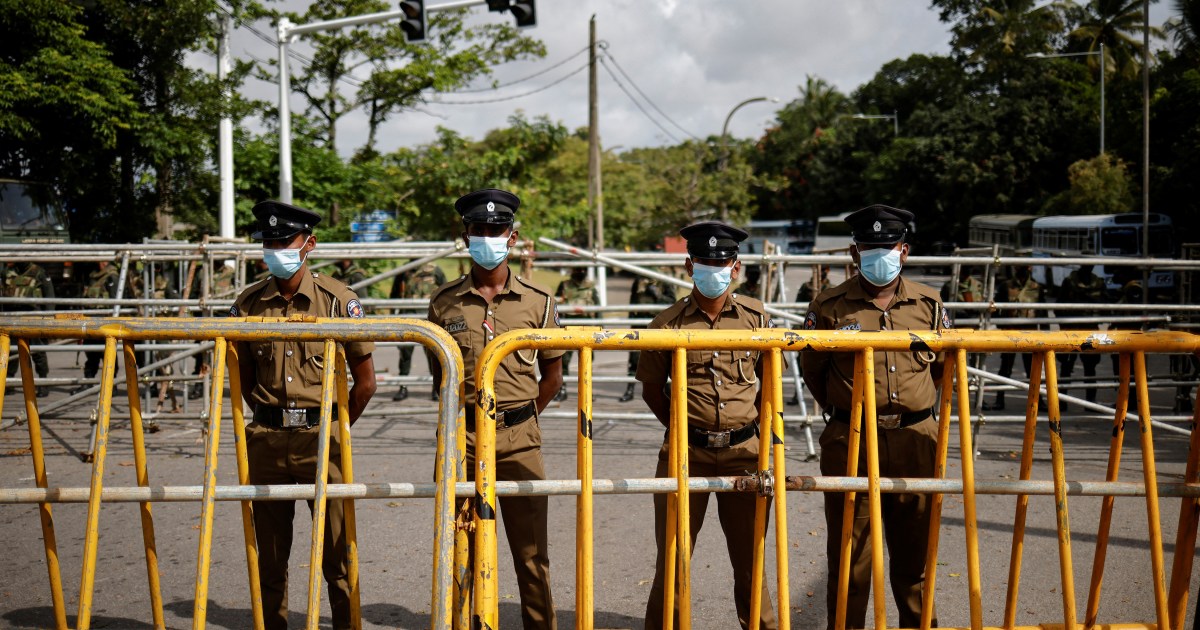Sri Lanka's resigned President Gotabaya Rajapaksa, who fled the country last week after a popular uprising against him, said he had taken "all possible steps" to avoid the economic crisis sweeping the country, at a time when the speaker's office said nominations for the country's president would be accepted next Tuesday, with MPs voting. The next day to choose a new president.
On Friday, Parliament announced the acceptance of the resignation of the president, who fled to the Maldives and from there to Singapore after hundreds of thousands of anti-government protesters took to the streets of the capital, Colombo, a week ago, and occupied his official residence and offices.
Parliament met today to begin the process of electing a new president, and Secretary-General Damika Dassanayak read Rajapaksa's resignation letter, in which he said that the financial crisis " stems from years of economic mismanagement dating back to before his presidency, as well as the Covid-19 pandemic, which has severely reduced tourist numbers and remittances. workers abroad.
"According to my personal conviction, I have taken all possible steps to address this crisis, including calling on members of parliament to form a unity government, or to include all parties," the letter stated in the resigned president, who ruled for two decades.
Nominations accepted
The Parliament Speaker's office said that the nominations for the post of President of the country will be accepted on Tuesday, 19 of this month, provided that the MPs vote the following day to choose Rajapaksa's successor, who, after voting for him on the twentieth of this month, will assume his duties until the end of the resigned president's term, that is, until November second 2024.
More than 100 security personnel were deployed on the road leading to Parliament today, as well as setting up guard barriers and preparing water cannons to prepare for any disturbances.
Security forces patrolled the perimeter of Parliament, but there were no signs of protests.
The ruling party chose former Prime Minister Ranil Wickremesinghe as its presidential candidate yesterday, who was sworn in the day before yesterday as acting president until a new president is elected.
Wickremesinghe - who has served as prime minister 6 times - is the most likely candidate, as he has the support of the ruling "Podugana Peramuna" party, which has 100 seats in parliament out of 225 total members.
relief program
The acting president said today that he will implement an urgent relief program to provide fuel, gas and basic food commodities to the people who are suffering due to the economic situation, and also pledged to start a dialogue with the protesters regarding the fight against government corruption.
The rival candidate is opposition leader Sajith Premadasa, who said - in an interview with the Associated Press in his office in the capital, Colombo - that if he wins the parliament vote, he will ensure that there is no selective dictatorship at all in Sri Lanka.
Also in the race is the prominent MP Dulas Alhapyruma, a former information minister and coordinator of the ruling party, and former army chief Sarat Fonseca - the archenemy of the Rajapaksa family - has expressed his intention to run.
The protests had escalated for several months as a result of the economic collapse, then intensified a week ago when hundreds of thousands of government buildings in the capital were seized, accusing the Rajapaksa family and their allies of being responsible for high prices, shortages of basic goods, and corruption.
For his part, Energy Minister Kanchana Wijesekera said that the country today received the first of 3 shipments of fuel, which will reach the country in about 3 weeks.
Another shipment of diesel will also arrive, and a shipment of gasoline is scheduled to arrive by next Tuesday.

